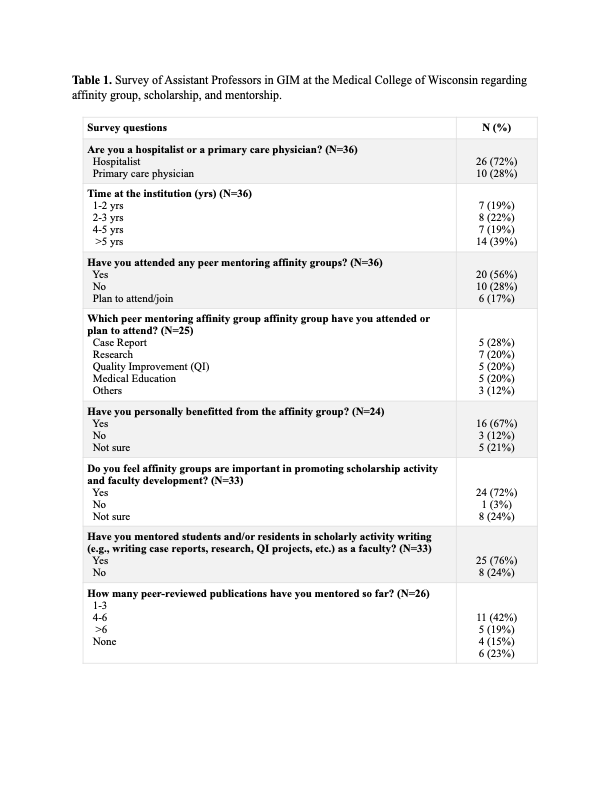Background: Promoting scholarship and mentorship among trainees and faculty is important for individual career development. Faculty who mentor trainees in improving scholarship performance, help improve their own academic and professional growth. However, many barriers limit faculty engagement in mentoring trainees, including limited time and lack of accessible resources, institutional/leadership support, formal training, and faculty development/structured mentorship programs. Research shows that faculty development programs help coach faculty to better mentor trainees. One strategy to support faculty development is facilitated faculty peer mentoring. There are very few studies describing the role of peer mentoring models in faculty development. One such study described that faculty peer mentoring is especially beneficial in areas with limited resources. Considering the importance of scholarship and mentorship in faculty development and career advancement, and a lack of a single widely successful faculty mentorship model, we developed “Affinity Groups” (AGs), in the Division of General Internal Medicine (GIM) at a tertiary academic medical center, a peer mentoring platform designed to organize collaborative networks, promote mentorship among faculty with common scholarly interests. The purpose of the study was to survey junior faculty participating in these AGs and explore their perceptions regarding AGs’ effectiveness.
Methods: Qualtrics survey was emailed to all assistant professors in GIM at the Medical College of Wisconsin (MCW) to assess their perceptions on affinity group. Responses were anonymous and presented using descriptive statistics.
Results: Of 85 assistant professors, 36 responded, response rate of 42%; 26 were hospitalists and 10 were primary care physicians. 39% of respondents had been at MCW for >5 years. 56% said they had previously attended peer mentoring affinity groups, and 17% planned to attend/join. 28% said they attended AG on case-report writing, research (20%), quality improvement (20%), and medical education (20%). 16 out of 24 faculty (67%) who attended AGs reported they personally benefited from it. Similarly, 24 out of 33 faculty (72%) who have attended peer mentoring AGs felt AGs are important in promoting scholarship activity and faculty development. Faculty who have previously attended AGs were more likely to mentor students/residents in scholarly writing compared to those who have not attended, although not statistically significant (90% versus 56%, p=0.056).
Conclusions: Our findings showed that junior faculty perceived benefits of attending peer-mentoring affinity groups. Organizations should understand the importance of creating a conducive environment for faculty to directly support trainees and peers, as faculty development programs are beneficial for early-career faculty. Compared to traditional mentoring with senior faculty, it can increase collegiality without a power differential and can foster a sense of inclusion for underrepresented minorities. AGs can be a wellness initiative by providing an engaging platform for sharing ideas, encouraging optimal patient care and inspiring innovations in healthcare and medical education. Encouraging AGs is an efficient and cost-effective way to promote faculty development as they can be facilitated in limited financial resources and only involve time and commitment from the participating faculty. Additionally, a study demonstrated that mentoring was a powerful predictor of promotion.

